Why She Did It? New York State Sen. Liz Krueger on Spearheading Cannabis Reform
After seven years of consistent effort, cannabis is finally fully legal in New York. This is in no small part thanks to the tireless work of New York State Senator Liz Krueger of the 28th District, who has been a passionate advocate for cannabis legalization over the past several years.
“It took us seven years to pass the bill here, but we learned a lot over the course of those seven years. We looked at what was working and not working in other states, and tried to get the best model possible built into our legislation,” Krueger says in regards to New York’s recent legalization through the Marijuana Regulation and Taxation Act (MRTA).
Krueger sat down with The Bluntness’s Gregory Frye for an episode of The Edge to discuss her journey in spearheading cannabis reform in The Empire State.
The History of Krueger’s Cannabis Advocacy in New York
There are many reasons Krueger has backed cannabis legalization so passionately for the past several years, but social justice is certainly at the forefront. Throughout the U.S., Black Americans are 3.64 times more likely to be arrested for cannabis possession than white Americans, and 8 times more likely in New York before legalization.
“The motivation I had to get involved was looking at the statistics in New York from the last decade of who was getting thrown into the criminal justice system for the use of small quantities of cannabis, and it was horrifying to me. It was so radically skewed to young people who were Black and Brown being arrested for cannabis smoking, being moved through the criminal justice system,” Krueger says.
“Even if they never went to jail on these issues, they ended up with records. They ended up being exposed to police precinct houses, arraignment courts...and we’re talking 90 percent of the people arrested being Black and Brown.”
These people quickly discovered that, for something as small as getting caught with a joint on their person, they could end up losing eligibility for all sorts of things: certain college grants and loans, living with their families in federally funded housing, and not being able to take civil service tests for some of the good-paying jobs that should have been available for their future.
Although Black and Brown teenagers have been arrested for cannabis at exceedingly higher rates than their white counterparts, research has revealed that people are prone to use cannabis at equal amounts regardless of race or gender.
Once Krueger became aware of the depth of this issue, she immediately recognized it as something fundamentally wrong. She also recognized that prohibiting cannabis wasn’t decreasing use of the plant at all, and the New York government spending about half a billion dollars per year to bust people for low-level cannabis use was doing nothing but ruining lives.
“Maybe we didn’t know this 50 years ago, but we now know that marijuana has less [harmful] health effects on us than alcohol or tobacco, two products that aren’t outlawed in any state in the country, and yet we were approaching cannabis the same way we’d be approaching heroin or fentanyl,” Krueger says, noting that those substances, too, are worthy of conversations. “So, I decided I was going to attempt to draft a law that would make adult-use cannabis legal.”
How Krueger Helped Bring New York’s Medical Cannabis Program to Fruition
Krueger came to the conclusion that she would draft an adult-use cannabis bill before New York even had their medical cannabis program in place, and she had a plan.
If she put in a bill for adult-use cannabis, no matter how many people called her crazy for it, it would force the governor to support medical cannabis in an attempt to kill the idea of adult-use ever happening in New York.
Three days later, Governor Cuomo signed New York’s first medical cannabis bill, although the program was incredibly restrictive and difficult for patients to access.
The medical cannabis program in New York has since been redefined along with the new adult-use legislation, allowing for wider access and clear guidelines around hemp and CBD as well.
For Krueger, the road to cannabis reform in New York was filled with plenty of hurdles and challenges.
She started off with conversations – as many as she could take on. “I talked to everyone. Whoever wanted to talk to me. I had elected officials who would say, ‘Look, I want to be with you, but my community is not there. Will you come and talk to them if I host a town hall meeting?’”
Krueger agreed to every town hall meeting that came her way, prepared for hostility, and while she was occasionally met with rancour, what she discovered was that the majority of the people out there just didn’t have the facts.
She began coming prepared with credible information and statistics, ready to combat negative stigmas and misconceptions, the most prominent one being that cannabis is a “gateway drug.”
“People have this belief that it will lead to heroin and fentanyl and opioid addiction, and I would try to walk through the research that has shown marijuana is not a gateway drug. Marijuana could be addictive to some people who are prone to addiction, but it has a lower rate of ‘addiction’ than alcohol or tobacco, and it’s mostly psychological and can be gotten over fairly easily,” Krueger says.
As Krueger continued her research, she also discovered that although cannabis was illegal, it was easier to obtain than alcohol or tobacco at the time – especially for anyone underage.
“That’s what I was told by police all over the state,” Krueger says. “That you need ID to get alcohol or tobacco, but for marijuana, you can use an app and order a delivery to wherever you are in the state of New York in like, twenty minutes. Nobody’s asking your age – nobody’s asking anything, because it’s an illegal process.”
Essentially, Krueger recognized that legalizing cannabis would eliminate the laundry list of risks that goes along with relying on an informal market.
She also saw that legalization would help the state be more accountable in regards to who is buying and selling cannabis.
“I would explain to people that if they think they’re worried about marijuana for their kids or other people in their lives, they need to understand that it’s here. It’s just not legal, and they’d be much better off with a legal system.”
The Damage Anti-Cannabis Laws Have Done To New York (And The U.S. As A Whole)
With a legal market, consumers will be able to know exactly what they’re purchasing and what its contents are with the assurance that it’s been medically tested and approved – without feeling like they’ve had to take a massive risk just to get a little weed.
A legal market also may help get rid of the racist, anti-Mexican connotations that have gone hand in hand with “marijuana” since the 1920s, she says.
“There was a point in history where marijuana was being grown in Mexico and brought over to the U.S., and the U.S. was worried that there was too much economic activity on the Mexican side of the border and was advantaging them, not us,” Krueger says. “That was the 1920s. And yet to this day, you still hear people talking about the ‘evil Mexicans’ and their marijuana.”
Between economic manipulation and police officers having to meet their arrest quotas, cannabis use has been wrongfully targeted throughout the country (and other parts of the world) for decades, and New York hopes to contribute to a new standard that results in a more honest and fair criminal justice system overall.
“I think cannabis prohibition has done harm to our police and corrections system, because you discourage people who really want to fight crime from wanting these jobs, because they’ll say, ‘I didn’t want to be a police officer so that I’d be busting teenagers for something that I don’t even think is wrong, so I’m not going to do this.’ So you discourage people from going into policing for the right reasons, and then you’ve created this system which just plays on itself over and over again,” Krueger says.
This flawed system not only harms the police officers who want to fight actual crime – it also harms the Black and Brown children who’ve been raised to rightfully distrust the system that wrongfully targets them.
“It changes how parents teach their children, and then it changes the child’s relationship with the criminal justice system long before they even are making a decision about whether they’d ever think about using marijuana,” Krueger says.
Krueger recalls an instance from about 25 years ago, when Rudy Giuliani was Mayor of New York City. Krueger was at a work lunch with mostly women when the following discussion came up: How old should your child be when you teach them how to not get killed by the police?
“I went, ‘What is this conversation?’ And the other women go, ‘Oh, you’re white, you guys don’t do this. If you were a Black or Brown parent, you know you have to teach your kids how not to end up getting arrested or shot by a police officer, when whatever is going on has absolutely nothing to do with your child. They’re just there,’” Krueger remembers.
“I go, ‘You actually have a lesson plan?’ ‘Yes. What do white people teach their kids?’ And I said, ‘If you’re in trouble, go look for a police officer.’”
Krueger never forgot that conversation. It was one of the first to make her realize what a real problem this is, and how commonly it has occurred throughout the nation.
New York’s Hope for the MRTA to Function As A Model For Other States
Over the years, Krueger has worked with advocates from drug policy and civil rights organizations to discuss the specific impact that anti-cannabis laws have had on communities of color. She understood their messaging to be quite clear: justice.
Cannabis legalization cannot stand on its own without bringing justice to the communities that have been wrongfully targeted. Legalization is the first step, but it must include efforts to undo some of the harms that befell the communities that had to pay the price for prohibition.
This effort must include investing money from legal cannabis sales back into those communities, sealing and/or expunging criminal records, and providing functional social equity programs for cannabis brands owned by people within these communities – all of which have been included in New York’s adult-use plan.
“I can guarantee you we got some things wrong, and like other states who have gone down this road, we will make adjustments and amendments as we see that something isn’t working correctly,” Krueger says.
“It never bothers me to recognize that, okay, you tried to do something big? There’s a decent chance you don’t get it completely right the first time out. But that’s why democracy exists – to be dynamic and to change with how things are needed.”
Need a little more Bluntness in your life? Check out our YouTube page!
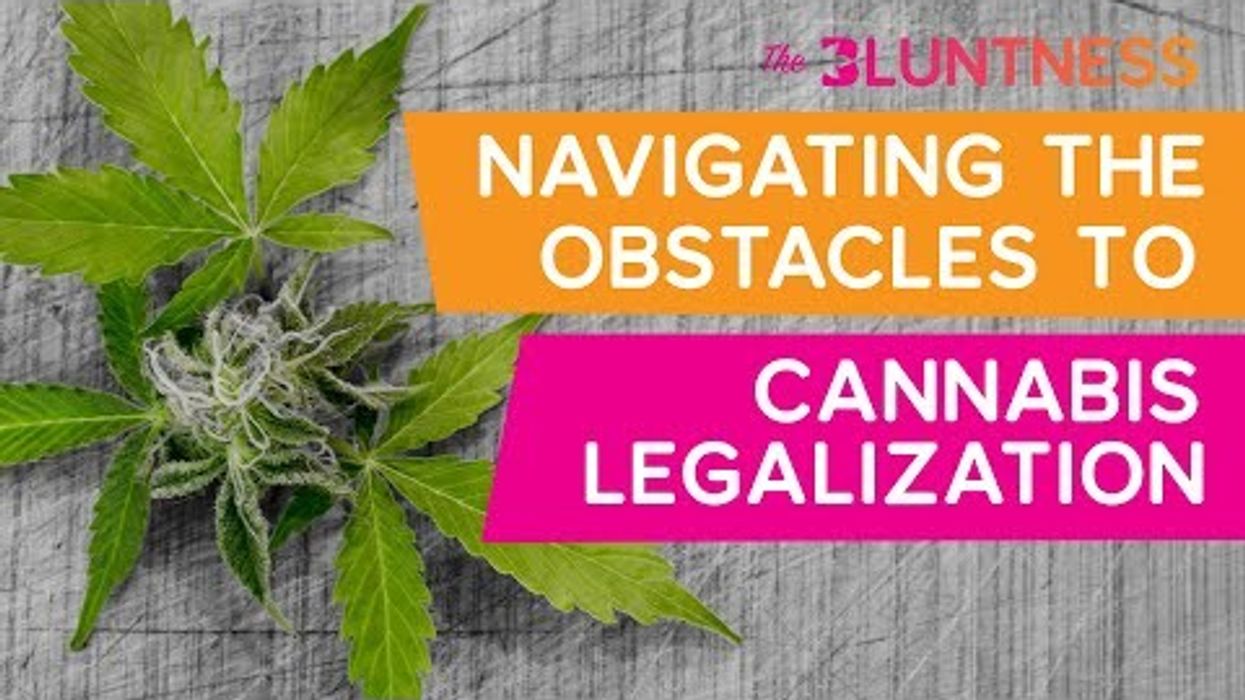

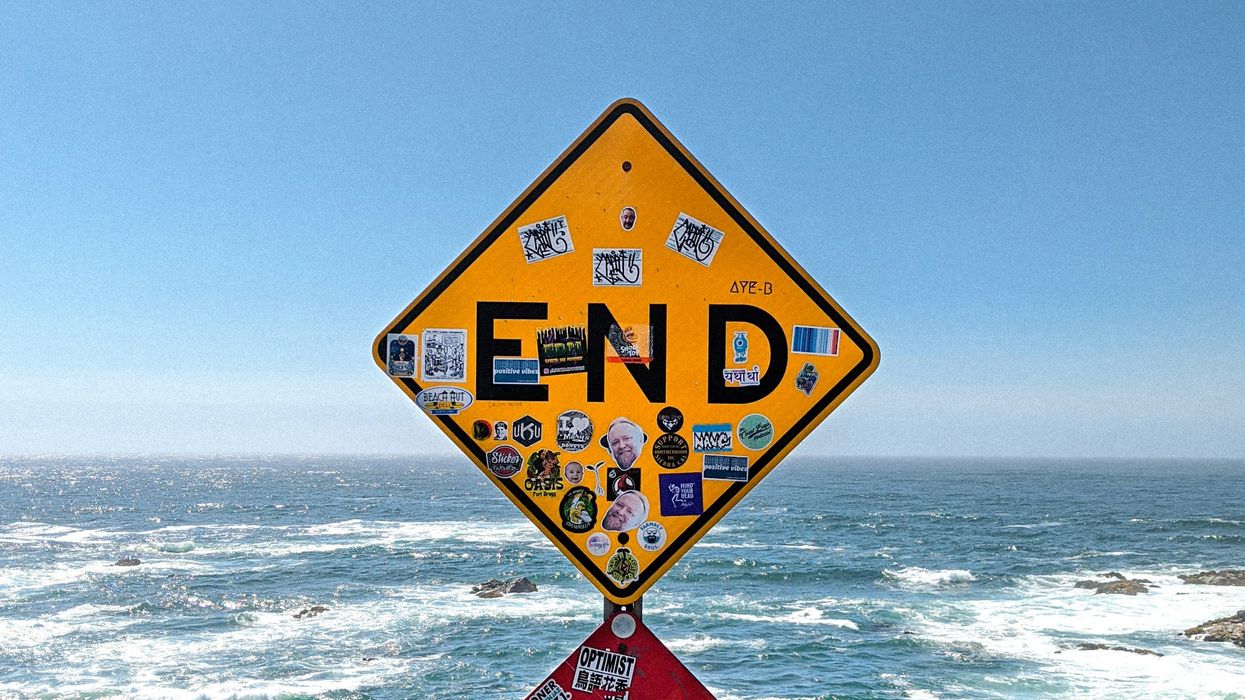
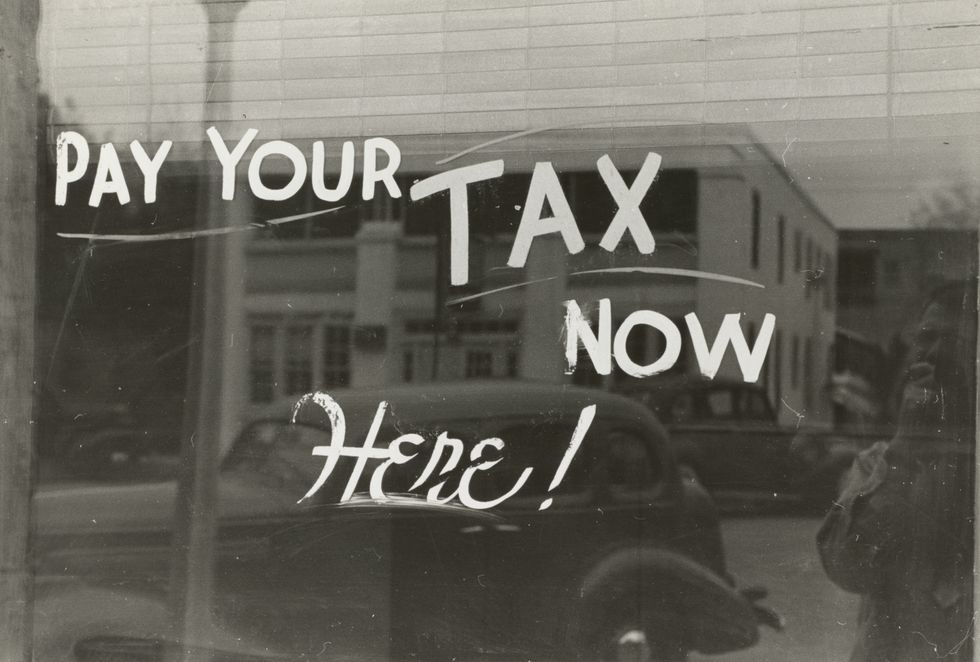 California’s Cannabis Tax Hike Is a Death Blow to the Legal Market - The Bluntness
Photo by
California’s Cannabis Tax Hike Is a Death Blow to the Legal Market - The Bluntness
Photo by 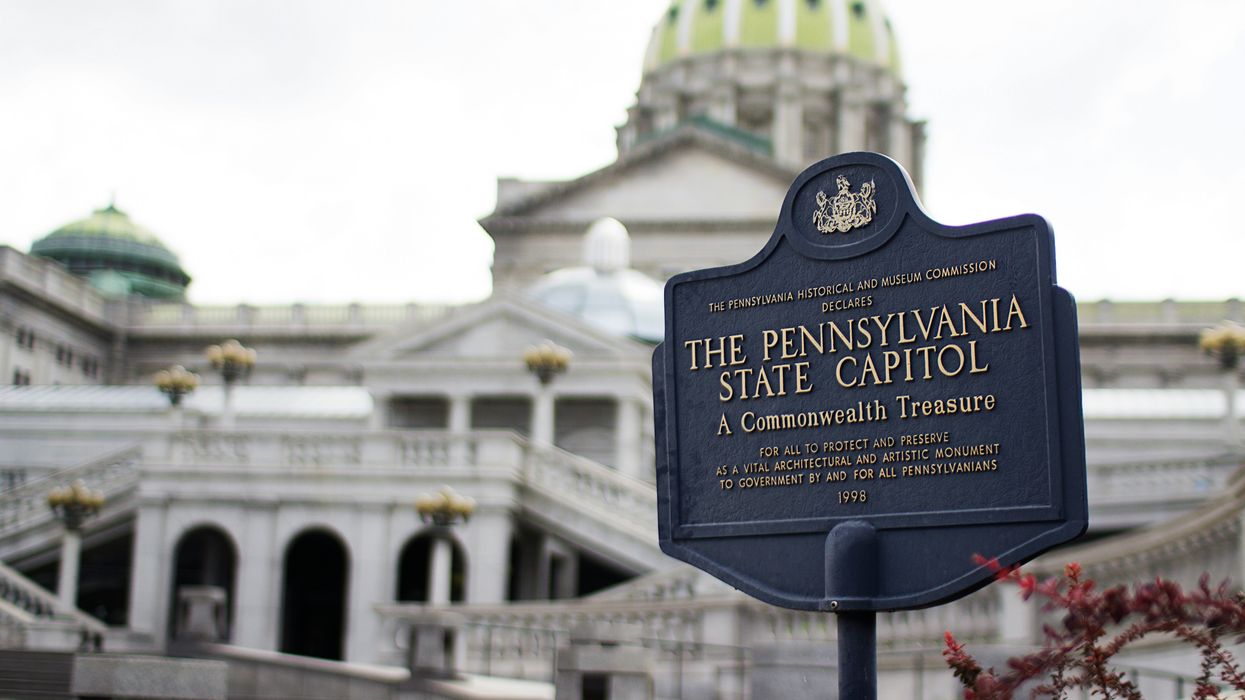
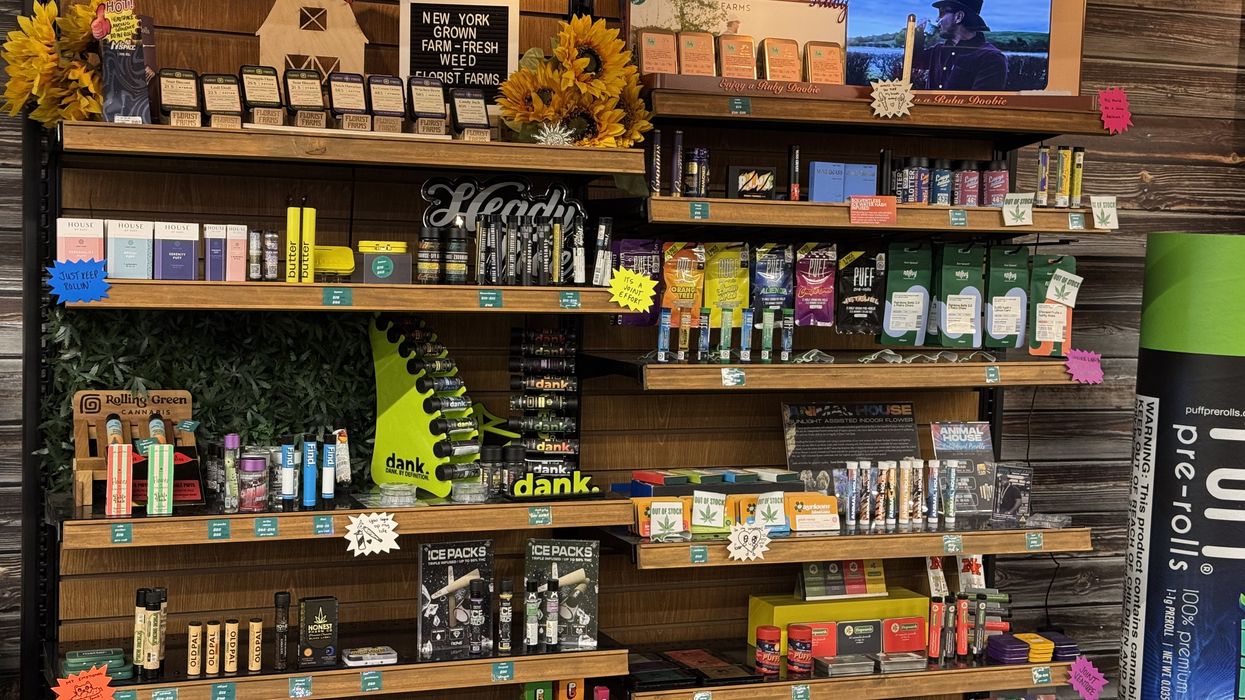
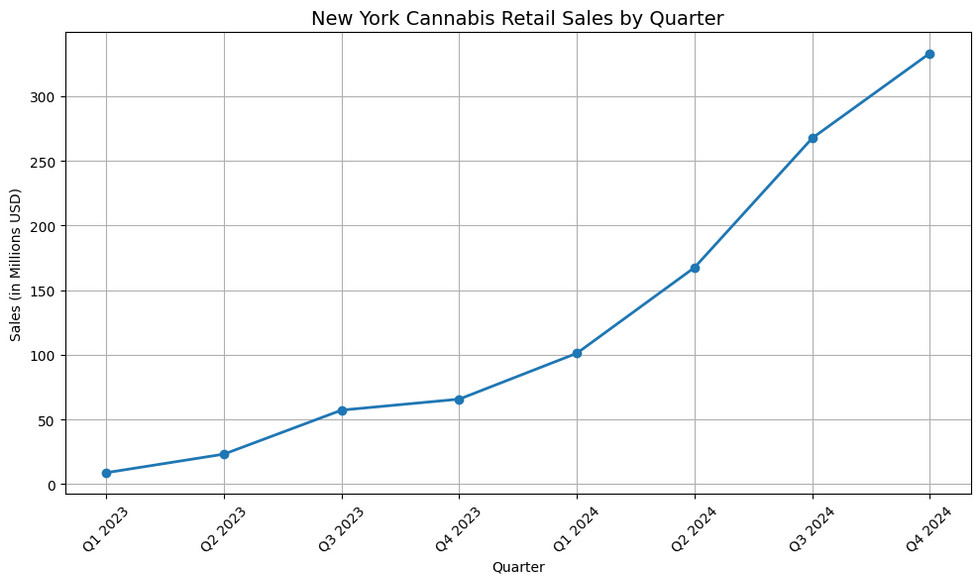 New York Cannabis Retail Sales by Quarter - 2024 - The Bluntness
New York Cannabis Retail Sales by Quarter - 2024 - The Bluntness 2024 New York Market Share by % of Sales - The BluntnessThe Bluntness
2024 New York Market Share by % of Sales - The BluntnessThe Bluntness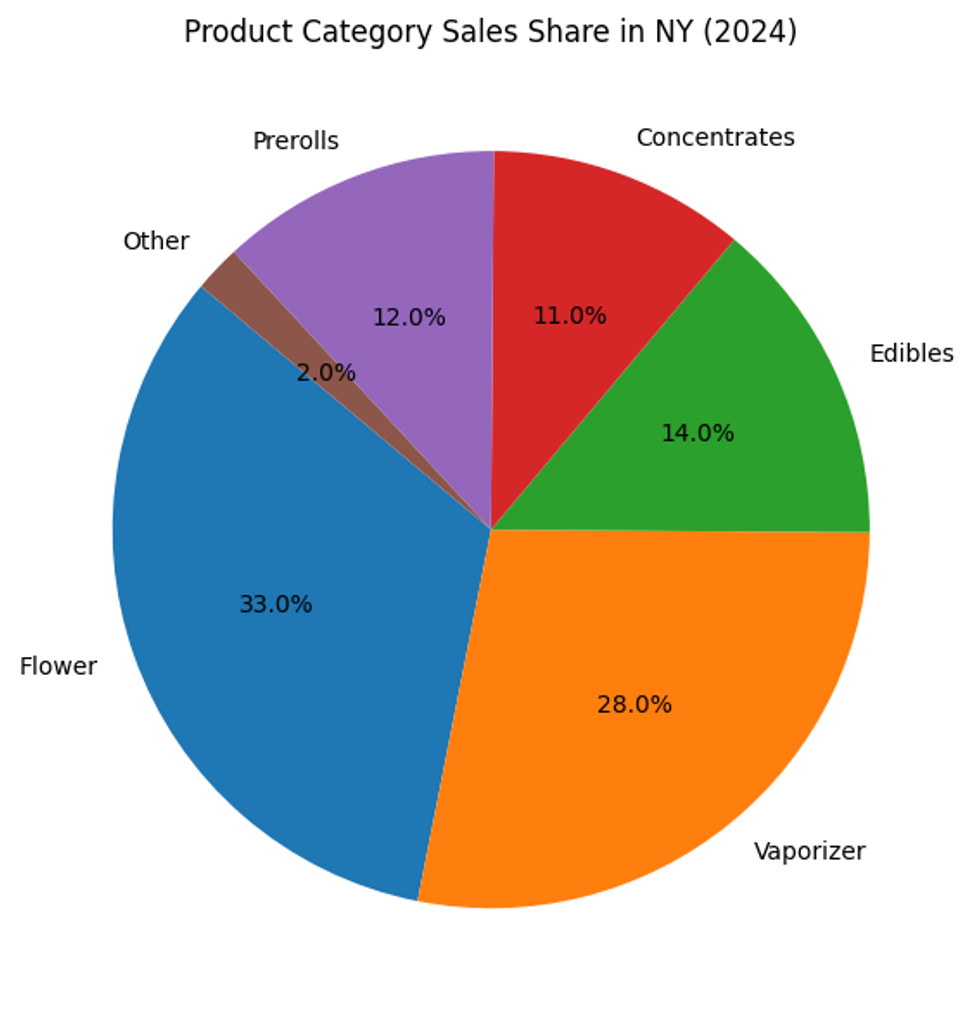 Share of market by product category according to 2024 OCM Report - The Bluntness
Share of market by product category according to 2024 OCM Report - The Bluntness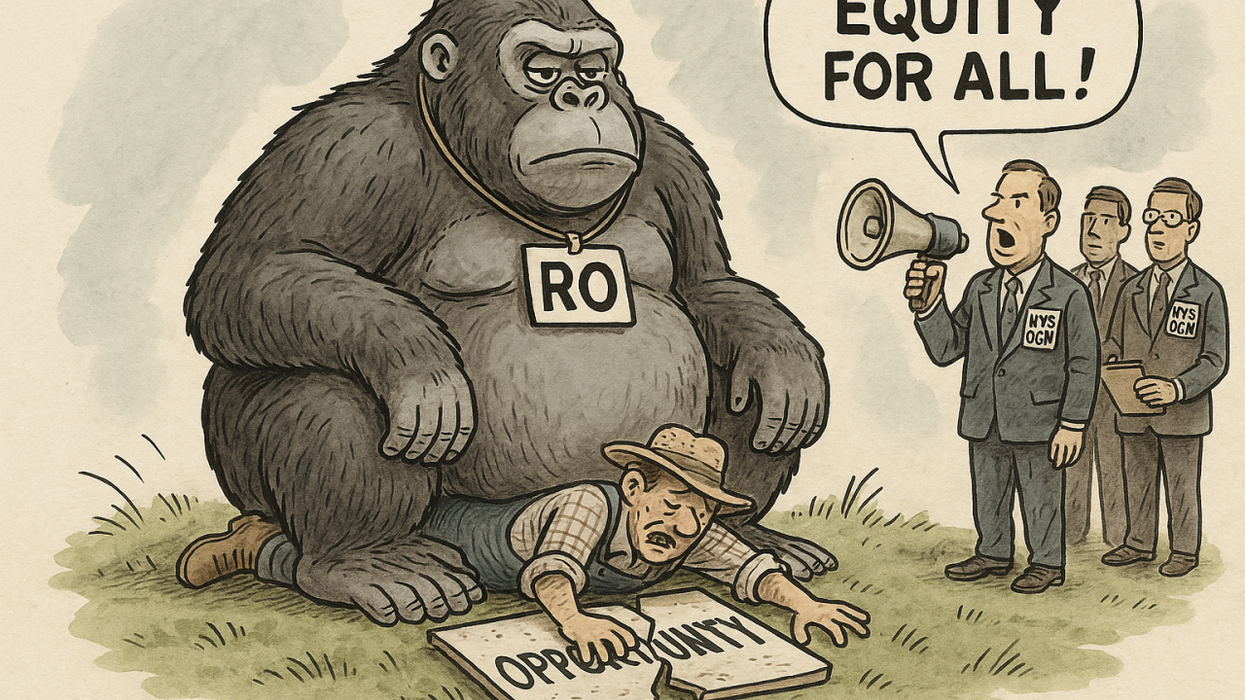
 Original Concept: Jason Ambrosino | Artwork generated via AI Illustration.
Original Concept: Jason Ambrosino | Artwork generated via AI Illustration.
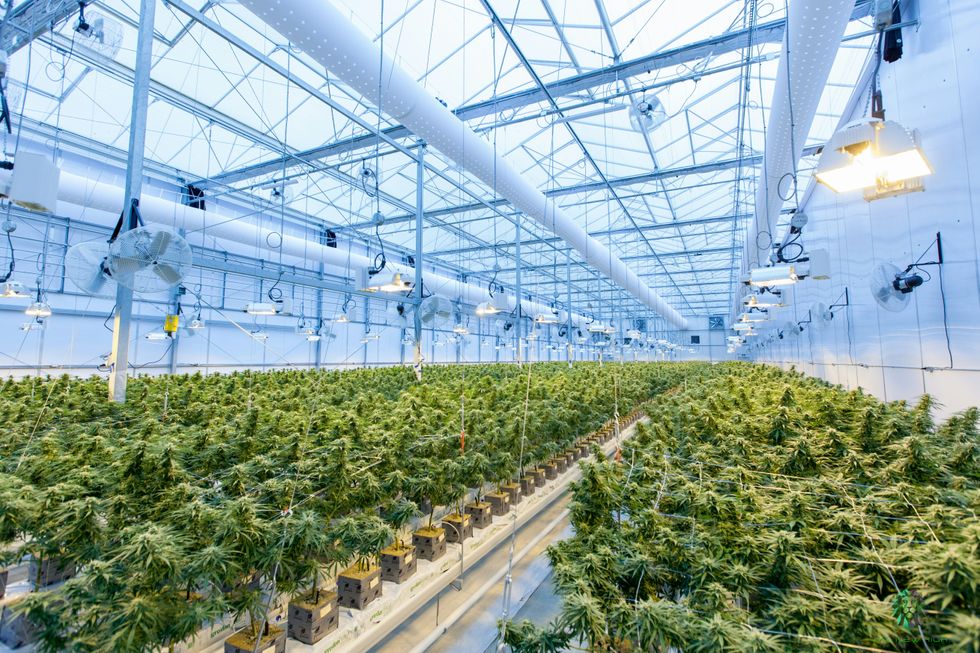 When it comes to pricing, cultivation methods matter - The Bluntness
Photo by
When it comes to pricing, cultivation methods matter - The Bluntness
Photo by 










